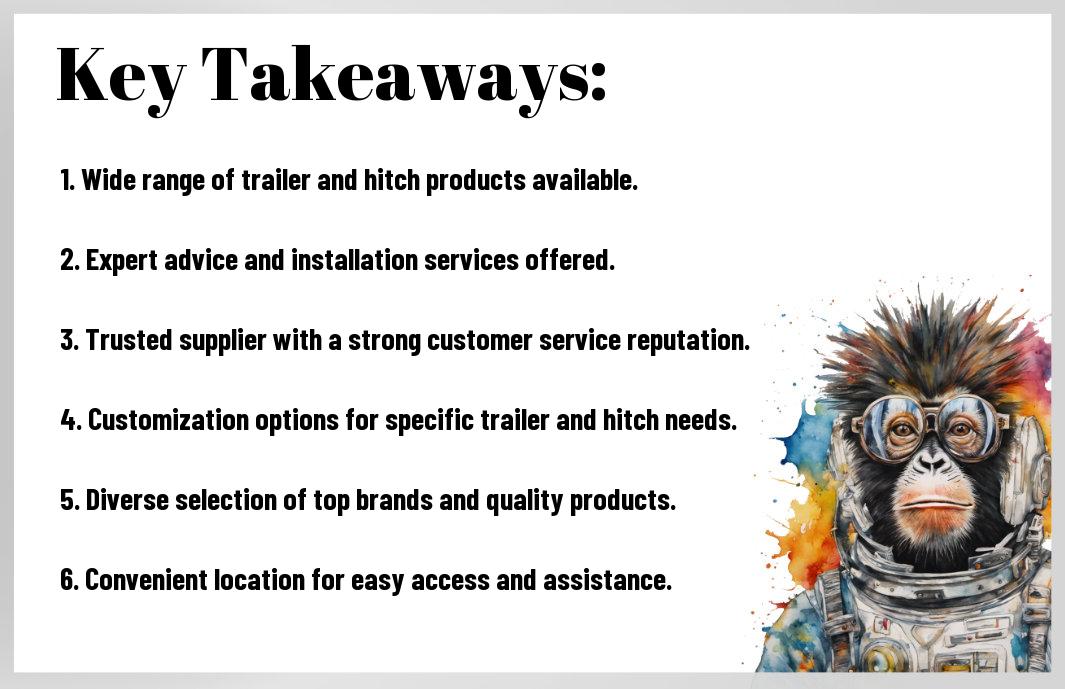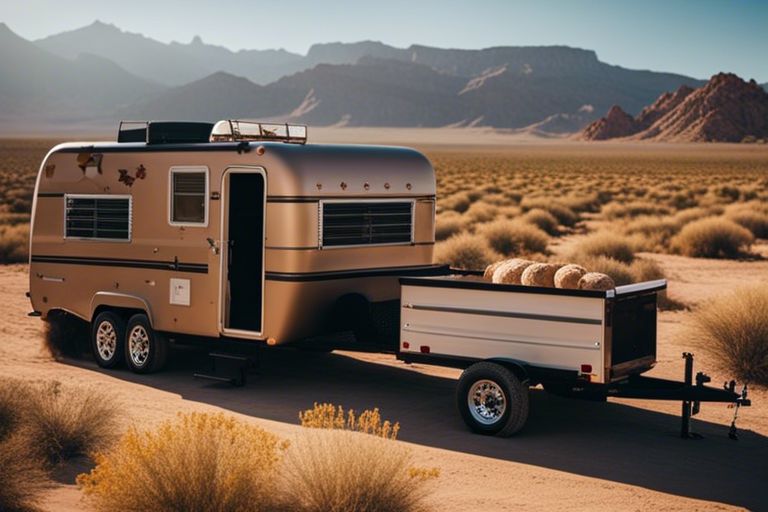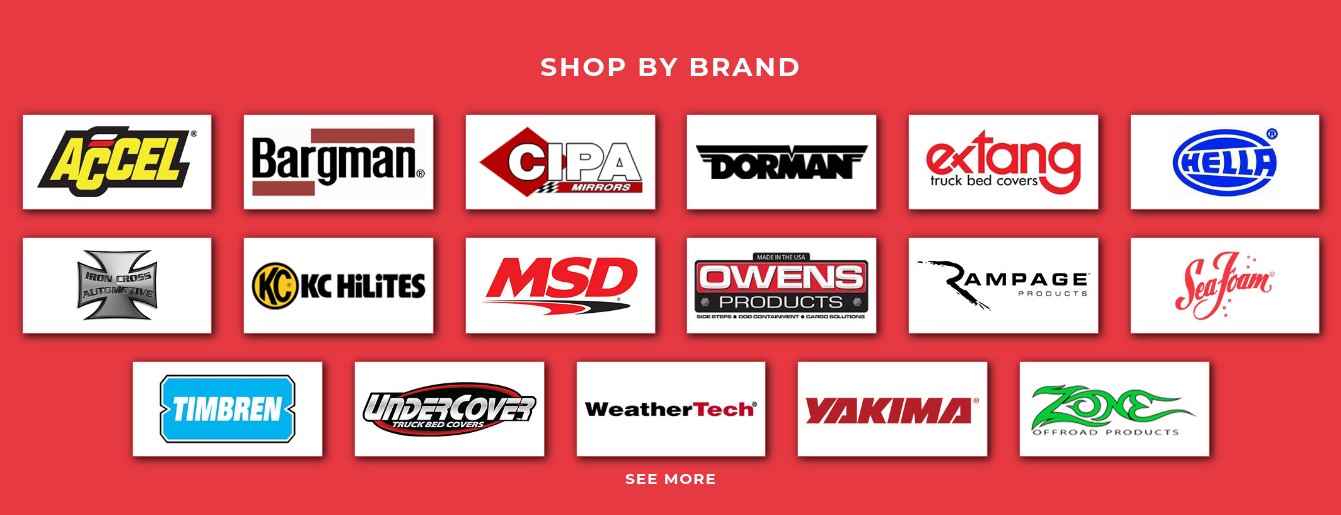Greetings, all! Today we’re diving into the world of Texas trailers and hitches. Whether you’re hauling livestock, machinery, or recreational vehicles, having the proper trailer and hitch set-up is crucial for a safe and efficient journey. We’ll be exploring the importance of selecting the right trailer and hitch for your needs, as well as the dangers of improper equipment and the benefits of a sturdy and reliable set-up.
Key Takeaways:
- Wide range of trailer and hitch solutions: Texas Trailer and Hitch provides a diverse selection of trailer and hitch options including utility trailers, dump trailers, gooseneck trailers, and a variety of hitch types to suit different needs.
- Customization and installation services: The company offers customization and installation services to ensure that each customer gets the right trailer and hitch solution tailored to their specific requirements.
- Experienced and knowledgeable team: With an experienced and knowledgeable team, Texas Trailer and Hitch is able to provide expert advice and guidance to assist customers in making informed decisions about their trailer and hitch needs.


The History of Trailers and Hitches in Texas
The state of Texas has a rich history when it comes to the use and development of trailers and hitches. From the early innovations and adaptations to the evolution of trailer and hitch designs, Texas has played a significant role in shaping the way these tools are used and designed.
Early Innovations and Adaptations
History of trailers and hitches in Texas dates back to the early 1900s when the first automobiles started to appear on the vast Texan landscape. As people started using automobiles for transportation, there was a growing need for a way to tow goods and equipment. This led to early innovations in trailer designs, adapting them to the rugged and diverse terrain of Texas. The development of hitches also played a crucial role during this time, as they needed to be sturdy and reliable to handle the challenging conditions of the state.
Evolution of Trailer and Hitch Designs
Texas has been at the forefront of the evolution of trailer and hitch designs, with manufacturers and engineers constantly pushing the boundaries to create more efficient and durable products. The evolution of trailer and hitch designs in Texas has been marked by advancements in materials, technology, and safety features. The state has been a driving force in the development of heavy-duty hitches and trailers, aimed at meeting the demands of industries such as agriculture, oil and gas, and construction. These designs have also focused on enhancing safety features, making the transportation of goods and equipment more secure and reliable.

Types of Trailers Used in Texas
Now, when it comes to hauling heavy loads or transporting goods, several types of trailers are commonly used in Texas. The types of trailers commonly used in Texas are utility trailers, boat trailers, travel trailers and RVs, livestock trailers, and specialty trailers. Below is a breakdown of the different types used in the Lone Star State.
| Utility Trailers | Boat Trailers |
| Travel Trailers and RVs | Livestock Trailers |
| Specialty Trailers |
Utility Trailers
On the roads of Texas, utility trailers are a common sight. These trailers are versatile and can be used for various purposes, including transporting furniture, equipment, and other bulky items. They come in different sizes and shapes to cater to different needs and are known for their durability and ease of use.
Boat Trailers
One of the most popular types of trailers in Texas is the boat trailer. Whether it’s for fishing on the countless lakes, rivers, and coastal areas or for leisurely trips to the beach, boat trailers are essential for boat owners in Texas.
Utility boats are often used by anglers in Texas to easily transport their boats to different fishing spots. They are essential for avid water enthusiasts, particularly those residing in coastal or lake areas.
Travel Trailers and RVs
Types of trailers used for accommodative purposes in Texas include travel trailers and RVs. These trailers provide the freedom to travel and explore the vast and diverse landscapes of Texas at your own pace. They are equipped with amenities and facilities for comfortable living, making them a popular choice for outdoor enthusiasts and vacationers.
Trailers are often used for camping, hiking, and outdoor adventures, providing a convenient way to experience the great outdoors without sacrificing comfort.
Livestock Trailers
Types of trailers primarily used in the agricultural sector in Texas are livestock trailers. They are designed to transport domestic animals such as cattle, horses, and pigs, from one location to another. Livestock trailers are vital for the ranching and farming communities in Texas.
With the vast expanse of farmland and ranches in Texas, these trailers play a critical role in the transportation and movement of livestock, contributing significantly to the state’s agricultural industry.
Specialty Trailers
Specialty trailers are designed for specific purposes such as transporting motorcycles, ATVs, cars, or heavy machinery. Their design and capabilities are tailored to meet the unique requirements of the cargo they carry. These trailers serve an array of industries and are essential for transporting specialized equipment and vehicles.
To cater to specific needs for transporting specialized equipment and vehicles, specialty trailers play a crucial role in diverse industries in Texas, including construction, automotive, and recreational sectors.
Hitch Systems and Their Applications
Unlike other components of a trailer, hitch systems are the primary connection between the trailer and the towing vehicle. They come in various types and designs, each tailored to specific towing needs and vehicle configurations. Understanding the different hitch systems and their applications is crucial for safe and efficient towing.
Receiver Hitches
Receiver hitches are the most common type of hitches and are designed to be mounted to the vehicle’s frame using a square receiver tube. Receiver hitches are versatile and can accommodate a wide range of towing accessories, such as bike racks, cargo carriers, and tow hooks, making them popular for recreational and commercial towing applications.
Receiver hitches are categorized by classes, each indicating the maximum towing capacity and tongue weight it can handle. It’s crucial to select a receiver hitch that matches or exceeds the towing requirements and vehicle specifications to ensure safe and secure towing.
Fifth Wheel Hitches
Their distinct design features a coupling mechanism that sits in the bed of a pickup truck, providing a secure connection between the truck and the trailer. Fifth-wheel hitches are commonly used for towing heavy recreational trailers, such as RVs and large boats, due to their stability and weight distribution capabilities.
For instance, some fifth-wheel hitches come with sliding mechanisms to accommodate short-bed trucks, allowing for greater maneuverability when towing large trailers. Their unique design makes them an ideal choice for those seeking a reliable and stable towing experience for heavy loads.
Gooseneck Hitches
Fifth-wheel hitches are similar to gooseneck hitches, but they feature a heavy-duty ball mounted in the bed of the towing vehicle. Their design allows for a tighter turning radius and more flexibility when towing heavy loads, making them popular among farmers, ranchers, and commercial haulers.
The installation of a gooseneck hitch generally requires cutting a hole in the bed of the truck for the ball mount, and professional installation is recommended for optimal safety and performance. Their robust construction and towing capabilities make them a preferred choice for those with demanding towing needs.
Weight Distribution Hitches
On the other hand, weight distribution hitches are specifically designed to distribute the trailer’s tongue weight evenly across the tow vehicle and trailer axles. This helps improve the stability and control of the vehicle-trailer combination, especially when towing heavy loads or longer trailers.
Plus, some weight distribution hitches come with integrated sway control features to minimize trailer swaying and enhance towing safety. Selecting the right weight distribution hitch and properly adjusting it based on the trailer weight and vehicle specifications is crucial for safe and balanced towing.
Pintle Hitches
Hitches designed with a pintle coupling mechanism are commonly used in heavy-duty and military applications, providing a reliable connection for towing large and heavy trailers. With their robust construction and high towing capacity, pintle hitches are well-suited for heavy equipment trailers, construction equipment, and military vehicles.
With a simple and rugged design, pintle hitches can withstand extreme towing conditions, making them a preferred choice for those seeking durability and strength in their towing setup. Professional installation and regular maintenance are key to ensuring optimal performance and safety when using pintle hitches.
Legal Requirements and Safety Standards
Unlike other states, Texas has specific legal requirements and safety standards for trailer and hitch equipment. It is crucial for trailer owners to understand and comply with these regulations to ensure the safety of themselves and others on the road.
Trailer Registration and Inspection in Texas
To legally operate a trailer in Texas, it must be registered with the state’s Department of Motor Vehicles. Additionally, trailers are subject to periodic safety inspections to ensure they meet the state’s safety standards. These inspections cover important aspects such as brakes, tires, lights, and overall structural integrity, ensuring that trailers on the road are in proper working condition and safe to operate.
Hitch Installation and Towing Laws
Safety standards for hitch installation and towing in Texas are in place to prevent accidents and ensure the safe transport of trailers. Proper hitch installation is critical, as it directly impacts the stability and control of the trailer while being towed. Additionally, Texas has specific laws governing the towing capacity of vehicles and trailers, ensuring that they are not overloaded and are within safe operating limits.
Plus, understanding and adhering to these laws is essential for trailer owners to avoid fines and penalties, as well as to prevent accidents and ensure the safety of themselves and other road users.
Safety Equipment and Precautions
Registration of trailers in Texas not only involves paperwork but also adhering to specific safety equipment and precautions. This includes the use of safety chains, emergency brakes, and proper lighting and reflective materials. These measures are crucial in preventing accidents and ensuring the safe operation of trailers on the road.
Requirements for safety equipment and precautions are in place to protect both the trailer owner and other road users, reducing the risk of accidents and improving overall road safety.
Maintenance and Repair
Keep your Texas trailer and hitch in top condition with regular maintenance and prompt repairs. Proper care will ensure the safety and functionality of your equipment, as well as prolong its lifespan.
Routine Maintenance Practices for Trailers and Hitches
To maintain the performance and safety of your trailer and hitch, it is crucial to perform routine maintenance practices. This includes regular inspections of the trailer frame, tires, lights, and brakes. Regularly greasing the moving parts of the hitch and ensuring proper alignment are also essential to prevent wear and tear. Additionally, it is important to keep the electrical system in good condition, checking for any loose connections or damaged wires to ensure proper functioning of the trailer lights and signals.
Keep the trailer and hitch clean and free from debris to prevent corrosion and damage. Inspect and replace any worn or damaged components promptly to avoid potential hazards while on the road. By following these routine maintenance practices, you can ensure the safety and longevity of your Texas trailer and hitch.
Troubleshooting Common Issues
One common issue with trailers and hitches is irregular towing behavior, such as swaying or bouncing. This can be caused by incorrect weight distribution or improper hitch installation. Checking the weight distribution and making necessary adjustments, as well as ensuring the hitch is properly installed, can resolve these issues. Another common issue is electrical problems, leading to malfunctioning lights or brake systems. Regularly checking the electrical connections and fuses can help identify and resolve these issues before they escalate.
Any signs of rust or corrosion on the trailer frame or hitch components should be addressed immediately to prevent structural damage. Regularly inspecting and maintaining the trailer and hitch can help identify and resolve common issues before they become major problems, ensuring the safety and reliability of your equipment.
Professional Repair and Customization Options
Professional repair and customization options are available for Texas trailers and hitches. Common repair services include welding, axle and suspension repairs, and brake system maintenance. Additionally, customization options such as adding storage compartments or modifying the hitch for specialized use can be performed by experienced professionals to meet your specific needs.
Trailers and hitches are essential equipment for many individuals and businesses in Texas, and professional repair and customization options can help optimize their functionality and performance. Whether you need repairs, modifications, or upgrades, there are specialized services available to ensure your trailer and hitch meet your requirements and comply with safety standards.
Future Trends in Trailers and Hitches
Noticing the advancements in technology and growing demand for sustainability, the future of trailers and hitches is headed toward exciting changes and innovations. From technological advancements to sustainable and eco-friendly innovations, the industry is evolving to meet the needs of consumers while also promoting environmental responsibility.
Technological Advancements
Hitches are increasingly becoming integrated with advanced features such as smart sensors, automatic leveling, and improved towing capacity. These technological advancements are aimed at enhancing the safety, convenience, and overall performance of trailers and hitches. Additionally, there is a growing focus on developing wireless connectivity and telematics systems to provide real-time data and diagnostics for trailers and hitches, ensuring optimal functionality and reducing maintenance needs.
Sustainable and Eco-friendly Innovations
Hitches are undergoing a transformation towards sustainable and eco-friendly materials and designs. The emphasis on reducing carbon footprint and promoting environmental stewardship has led to the development of trailers and hitches made from recycled materials, as well as the integration of aerodynamic designs to improve fuel efficiency. Furthermore, the adoption of alternative energy sources, such as electric or hybrid trailers, is gaining traction, offering a greener and more sustainable option for towing needs.
Advancements in sustainable and eco-friendly innovations are not only driven by environmental concerns, but also by the growing consumer preference for eco-conscious products and practices. As regulations and standards evolve, manufacturers are poised to lead the way in embracing sustainable materials and technologies to meet the demands of an increasingly environmentally aware market.
Market Forecast and Consumer Preferences
Ecofriendly trailers and hitches are expected to be the focal point of the market in the coming years, with consumers showing a strong preference towards environmentally-friendly options. This shift in consumer preferences is further influenced by a greater awareness of sustainability and environmental impact, as well as the availability of government incentives and rebates for eco-friendly towing solutions. As the market continues to evolve, manufacturers and retailers will need to adapt to these trends by offering a diverse range of sustainable and eco-friendly trailers and hitches to cater to the growing demand.
Buying Guide and Recommendations
After deciding to invest in a trailer or hitch, it’s important to consider various factors to ensure you make the right purchase. Additionally, understanding best practices for buying used trailers and hitches can save you time and money. Furthermore, knowing the top dealers and manufacturers in Texas, as well as utilizing online resources and communities, can help guide you through the process.
Factors to Consider When Buying a Trailer or Hitch
To make an informed decision when purchasing a trailer or hitch, it’s crucial to consider the following factors:
- Type of Trailer: Whether you need an enclosed trailer, utility trailer, or specialty trailer.
- Towing Capacity: Ensure the hitch and trailer can safely tow the load you need.
- Compatibility: Confirm that the hitch and trailer are compatible with your vehicle’s make and model.
Knowing these key factors will help you choose the right equipment for your specific needs.
Best Practices for Purchasing Used Trailers and Hitches
Used trailers and hitches can be a cost-effective option, but it’s essential to follow best practices to avoid potential issues. Before finalizing a purchase, thoroughly inspect the equipment for any signs of wear and tear, as well as ensuring all components are in working condition. Additionally, obtaining maintenance records and a history of previous usage can provide valuable insight into the quality and reliability of the used trailer or hitch.
Buying used trailers and hitches requires careful consideration, but with the right approach, you can find quality equipment at a fraction of the cost. It’s important to conduct thorough research and inspections to make an informed decision.
Top Dealers and Manufacturers in Texas
Texas is home to a variety of reputable dealers and manufacturers offering a wide selection of trailers and hitches. Whether you’re in the market for new or used equipment, Texas has numerous options to choose from. When considering your purchase, look for dealers and manufacturers with a strong reputation for quality products and excellent customer service.
Online Resources and Communities
Hitches are an essential component for safe towing, and there are numerous online resources and communities dedicated to providing valuable information and advice. From forums and social media groups to informative websites, these resources can offer insights into the latest products, maintenance tips, and user experiences. Utilizing these platforms can help you stay informed and connected within the trailer and hitch community.
Summing up
Ultimately, Texas Trailer and Hitch is a one-stop shop for all your trailer and hitch needs. With a wide selection of products and knowledgeable staff, they have built a reputation for providing high-quality equipment and excellent customer service. Whether you are looking for a trailer to haul your equipment or a hitch for your towing needs, Texas Trailer and Hitch has you covered.
Their commitment to providing top-notch products and personalized attention to their customers sets them apart from the competition. If you are in the market for a trailer or hitch, look no further than Texas Trailer and Hitch for all your needs.
Are Texas Trailer and Hitch compatible with RV parts in Mission, TX?
Yes, Texas Trailer and Hitch offer a wide range of affordable RV parts in Mission, TX. Whether you need a new hitch, trailer accessories, or replacement parts for your RV, they have everything you need. Their products are high-quality and compatible with various RV models.
Are Truck Bed Covers Necessary for Texas Trails and Hitches?
Traversing the rugged Texas trails and hitches demands durable protection for your cargo. Mcallens top truck bed covers offer the resilience to shield your gear from the elements and thieves, ensuring peace of mind amidst the Lone Star State’s harsh conditions and open roads.
FAQ
Q: What types of trailers are commonly used in Texas?
A: In Texas, the most commonly used trailers include utility trailers, horse trailers, boat trailers, and RV trailers. These trailers are used for a variety of purposes including hauling equipment, transporting livestock, and enjoying recreational activities.
Q: What are the different types of hitches available for trailers in Texas?
A: In Texas, there are several types of hitches available for trailers, including bumper hitches, gooseneck hitches, and fifth-wheel hitches. Each type of hitch is designed for specific towing needs and vehicle capabilities.
Q: What are the towing regulations for trailers in Texas?
A: In Texas, trailers must adhere to specific towing regulations, including size and weight restrictions. It’s important to understand the towing laws and regulations to ensure safe and legal towing practices.
Q: How do I properly maintain my trailer and hitch in Texas?
A: Proper maintenance of your trailer and hitch in Texas is crucial for safety and longevity. This includes regular inspection of the trailer’s tires, lights, and brakes, as well as greasing the hitch components and checking for any signs of wear or damage.
Q: Where can I purchase quality trailers and hitches in Texas?
A: There are various reputable dealers and retailers in Texas that offer a wide selection of trailers and hitches. It’s important to choose a trustworthy supplier who can provide expert advice and quality products to meet your specific towing needs.





0 Comments